Clearing the Pond - An Update
Clear-Up after vandals Visit - Aug. 2021
Prior to the vandalism, we had cleared this pond and built a 'dead hedge'.
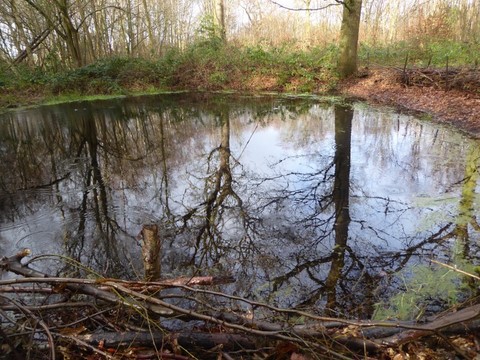
This picture shows the 'dead hedge' we had built.
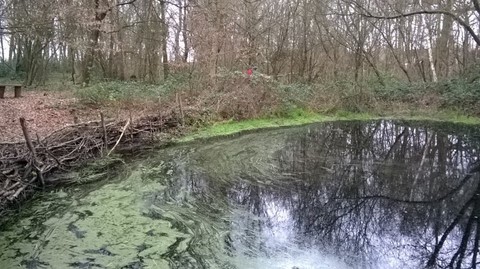
Hedge destroyed - bridge in pond.
The bridge floating amongst all the timbers from the dead hedge'.
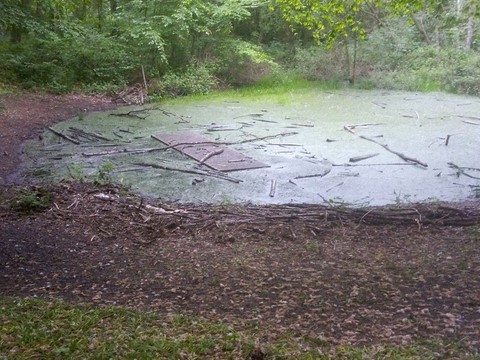
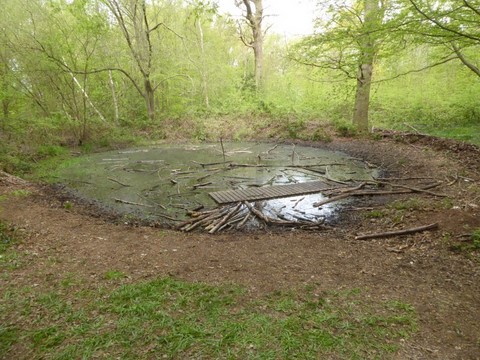

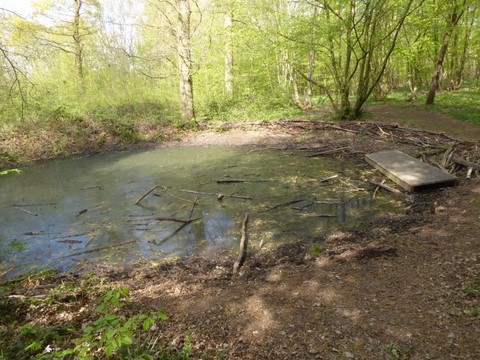
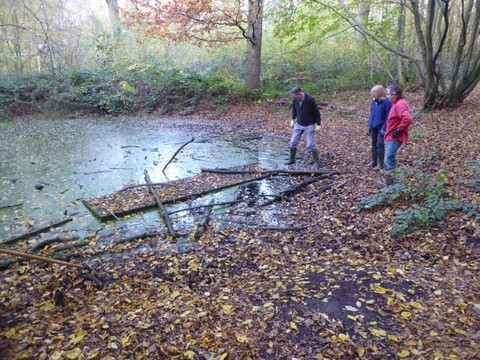
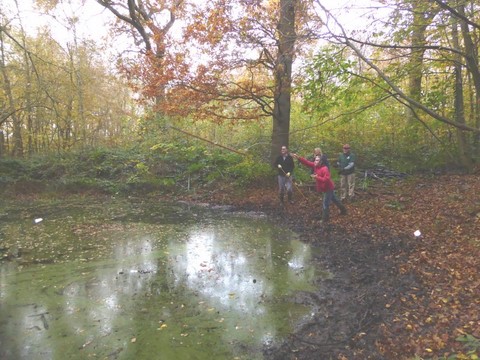
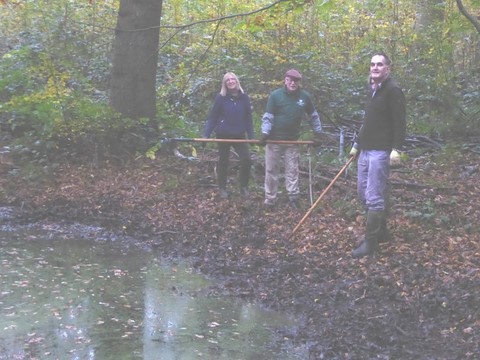
---------------------------------------------
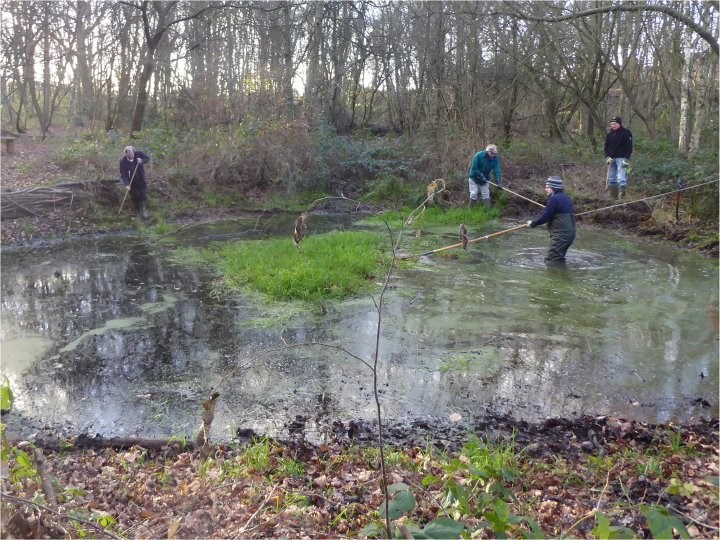
8th January 2019
With the Great Crested Newts in hibernation, we once again set ourselves the task of removing the vegetation from the larger pond.
Paul borrowed the "Norsey Wood" crone again so we had two crones and our squad of 6 worked very hard and, for the first time, successfully removed all visible weeds from the centre of the pond; this was due to Richard's ability in his waders to reach out & pull the weeds to the edge - as the photograph opposite shows.
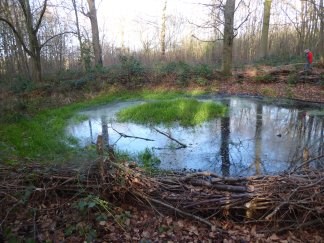
08.01.19 - The pond before we started
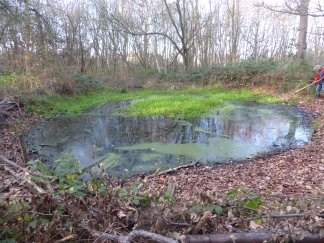
08.01.19 - The pond before we started
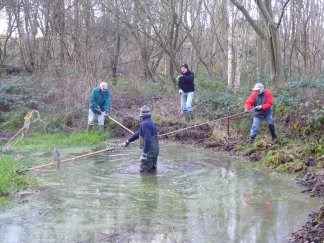
08.01.19 - Teamwork in action
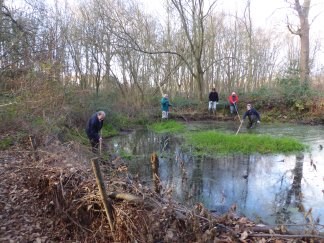
08.01.19 - Half the weeds have been removed
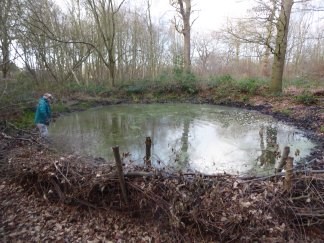
08.01.19 - All the weeds have been removed
---------------------------------------------------------------------------------
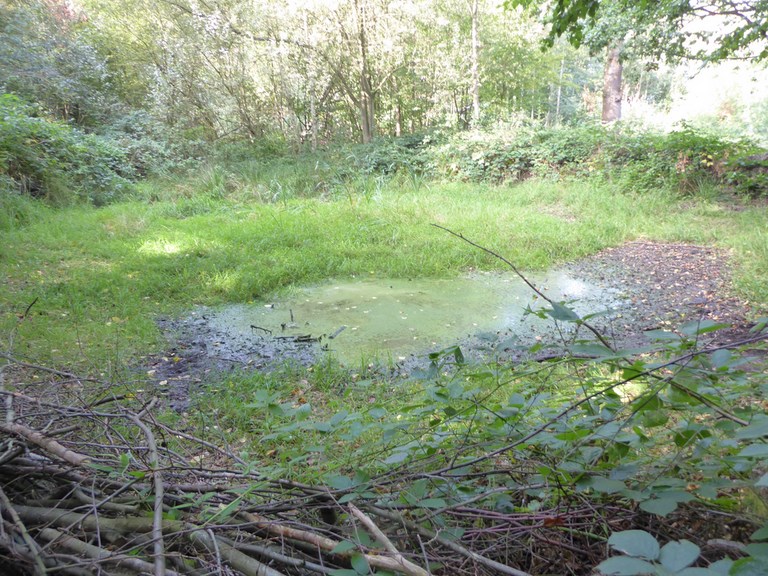
4th Oct 2016
It is believed that this pond is inhabited by Great Crested Newts. Before we started the vegetation removal in the pond, we were referred to an extract from the Great Crested Newt Handbook:-
"It is recommended that vegetation removal is carried out by hand in ponds where great crested newts are present.
Reduction of floating and submerged plants can be done, using a long-handled rake or a grapple on a rope to drag vegetation from the pond.
The removal of marginal and emergent vegetation from ponds should take place at the time of minimum newt activity. It
should obviously avoid the breeding season, when newts are active in the pond, and vegetation has newt eggs laid on it.
Depending on weather conditions within the year, September to November are likely to be the most suitable months to
undertake this work, when most animals have bred and are dispersed within or out of the pond or are dormant"
Licences for habitat management are only required when an activity which otherwise may be an offence (e.g. disturbance) is likely. Hence, for the majority of pond, woodland and grassland management, no licence is required so long as the work is done using appropriate methods and is timed to avoid unlawful activities.
It was also suggested we should leave the vegetation beside the pond to allow animals to return to the water. We did this last time anyway. If any Great Crested Newts are encountered please do not handle them
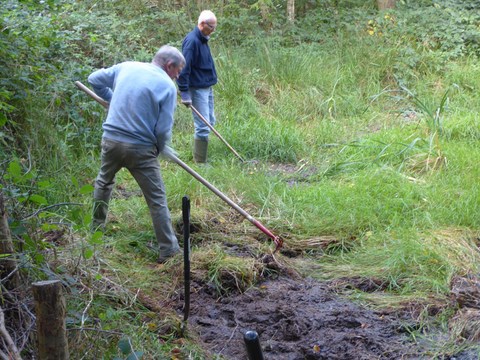
Roger and Rod at work
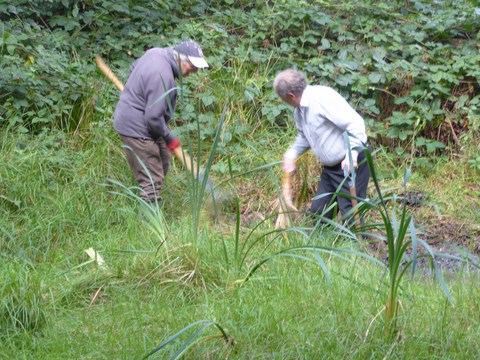
Mike and Alan at work
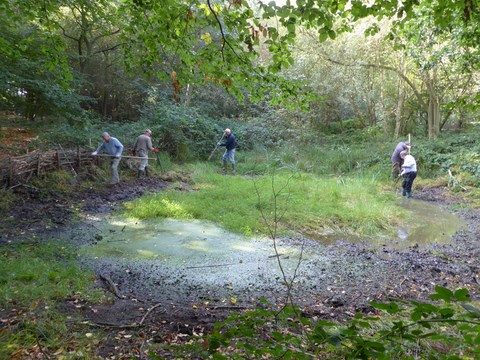
Already making inroads

Already making inroads
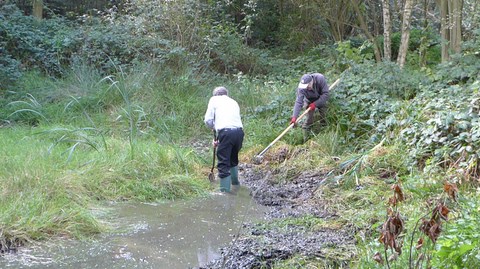
The mud was heavy
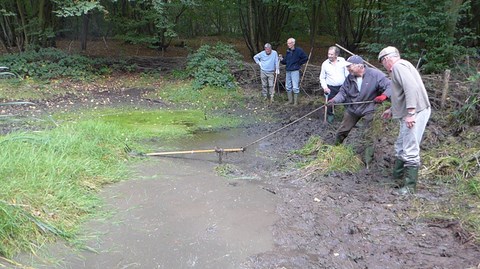
Using a rope to extend the crone's reach worked well
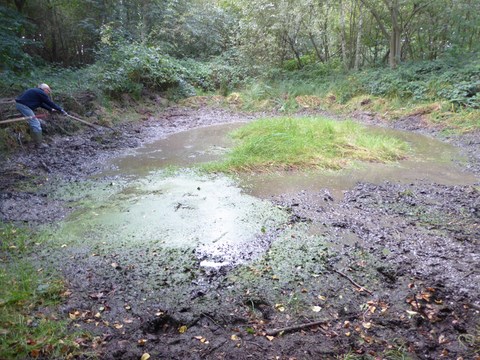
Amazing the difference a few hours work will make!
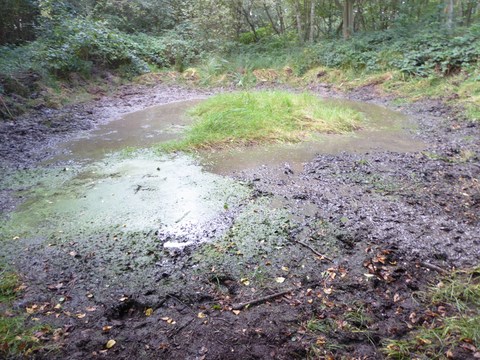
4th Oct 2016 -We'll finish the job next work party
